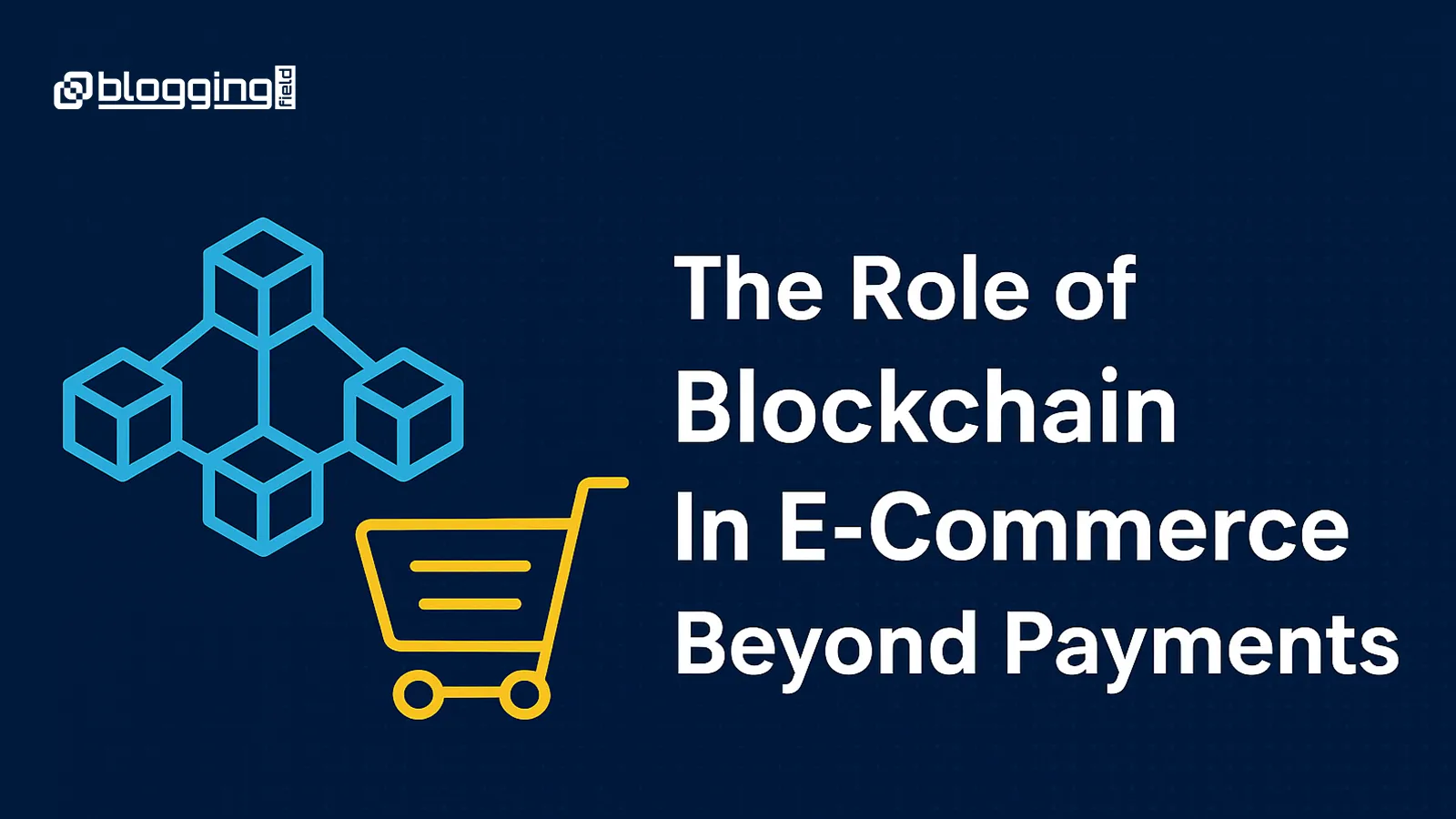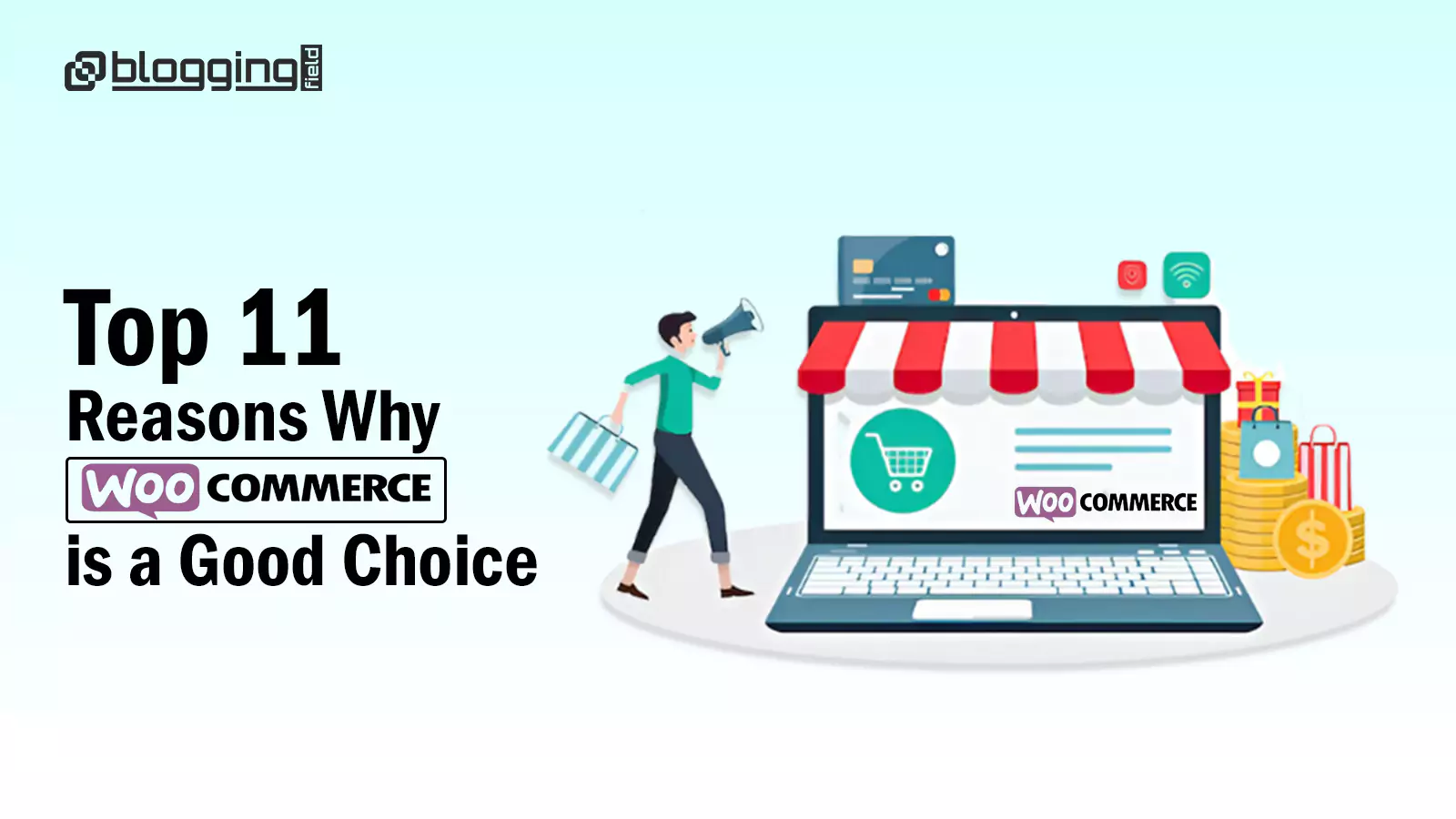Introduction
Blockchain technology is often associated with cryptocurrency and digital payments, but its potential in e-commerce goes far beyond financial transactions. From supply chain transparency to customer data security, blockchain is revolutionizing the way online businesses operate. In this blog, we’ll explore the growing role of blockchain in e-commerce beyond payments, its benefits, and how it’s shaping the future of digital retail.
What is Blockchain?
Blockchain is a decentralized digital ledger that records transactions across multiple computers in a secure and tamper-proof way. It ensures transparency, trust, and immutability by storing data in interconnected blocks.
Widely used beyond cryptocurrencies, blockchain powers supply chains, digital identities, e-commerce, and smart contracts.
Key Blockchain Uses in E-Commerce
1. Supply Chain Transparency
One of the biggest challenges in e-commerce is ensuring authenticity and trust in the supply chain. Blockchain provides a tamper-proof ledger that allows both businesses and customers to track products from manufacturing to delivery. This ensures the authenticity of products, which is especially important for luxury goods, medicines, and food. By making every step of the supply chain visible, blockchain reduces fraud and counterfeit issues while improving the accountability of suppliers and logistics partners.
2. Enhanced Data Security & Privacy
E-commerce platforms handle vast amounts of sensitive customer information, making data security a top priority. Blockchain enhances security by offering decentralized data storage, which reduces the risks of hacks and breaches. With stronger encryption and identity verification methods, blockchain gives customers greater confidence when shopping online. It also empowers users with more control over how their personal data is used, making online shopping more secure and trustworthy.
3. Digital Identity Verification
Verifying user identities is critical in preventing fraud in e-commerce, and blockchain offers a revolutionary solution. Instead of relying on centralized databases that are prone to breaches, customers can use blockchain-based digital IDs. This technology helps retailers reduce fake accounts and fraudulent activities while enhancing trust between buyers and sellers. Ultimately, blockchain-based identity verification provides a safer and more reliable shopping environment.
4. Loyalty Programs & Smart Contracts
Traditional loyalty programs often suffer from inefficiency and limited flexibility. Blockchain simplifies and improves these systems by making them transparent, interoperable, and automated. Customers can view their points and rewards in real-time, use loyalty tokens across multiple platforms, and benefit from instant redemption through smart contracts. By removing middlemen and delays, blockchain-powered loyalty programs create a seamless and rewarding experience for shoppers.
5. Decentralized Marketplaces
Most e-commerce today relies on centralized platforms like Amazon or Flipkart, which often charge high commissions. Blockchain introduces the possibility of peer-to-peer marketplaces, where sellers connect directly with buyers. These decentralized platforms reduce fees, eliminate unnecessary intermediaries, and foster greater trust through blockchain-powered product tracking and review systems. The result is a more open, transparent, and fair e-commerce ecosystem.
6. Improved Customer Trust & Transparency
Modern consumers increasingly demand proof of product quality, sustainability, and ethical sourcing. Blockchain helps meet these expectations by providing verified product origins and certifications. It also enables businesses to demonstrate eco-friendly practices and ensures transparency in returns and refunds. This not only strengthens trust between customers and retailers but also helps brands build long-term loyalty through authenticity and accountability.
Why Blockchain Matters for E-Commerce
Blockchain is rapidly becoming a game-changer in the e-commerce industry, offering solutions to many of the challenges online businesses face today. The most important reason blockchain matters is that it builds trust and transparency between businesses and customers. Every transaction and product journey can be recorded on an immutable ledger, giving shoppers confidence that the goods they receive are authentic and ethically sourced. This is especially valuable for industries dealing with luxury items, medicines, or food products where authenticity and safety are critical.
Beyond trust, blockchain also strengthens data security and privacy. Unlike traditional centralized systems that are prone to cyberattacks, blockchain stores customer information in a decentralized manner, protected by encryption, which gives users more control over their personal data. Another key benefit is the fight against counterfeit products, as blockchain enables digital certificates and verified product origins, helping customers distinguish genuine items from fake ones.
1. Building Trust with Transparency
2. Stronger Data Security & Privacy
3. Fighting Counterfeit Products
4. Smarter Payments & Contracts
5. Enabling Decentralized Marketplaces
The Future of Blockchain in E-Commerce
The future of blockchain in e-commerce looks highly promising as the technology continues to evolve and find new applications beyond digital payments. In the coming years, blockchain is expected to drive greater trust and transparency across online marketplaces, ensuring that every product’s journey from manufacturer to customer is traceable and verifiable. This will not only help businesses combat counterfeiting but also give consumers more confidence in the authenticity and ethical sourcing of the products they buy. As global e-commerce expands, blockchain will become a vital tool for building stronger customer relationships and brand loyalty.
Another major role blockchain will play in the future of e-commerce is in data security and digital identity management. With cyber threats becoming more advanced, businesses will increasingly rely on decentralized blockchain systems to safeguard sensitive customer information. Blockchain-based digital IDs could replace traditional login systems, allowing users to shop online without exposing personal data to hackers. At the same time, smart contracts will revolutionize business processes by automating payments, returns, warranties, and loyalty programs, creating faster and more efficient customer experiences.
Trust & Transparency: Verifiable product journeys and reduced counterfeiting.
Data Security: Decentralized systems protect customer information.
Digital Identity: Blockchain-based IDs for safer online shopping.
Smart Contracts: Automation of payments, refunds, warranties, and rewards.
Decentralized Marketplaces: Direct buyer-seller connections with lower costs.
Customer Trust: Tamper-proof reviews and ethical sourcing verification.
Competitive Advantage: Early adoption gives businesses a strong edge.
Conclusion
Blockchain is no longer just about cryptocurrency transactions — it is reshaping the future of e-commerce. From supply chain transparency to data security, loyalty programs, and decentralized marketplaces, blockchain ensures a more trustworthy, secure, and customer-focused online retail environment. As adoption grows, businesses that embrace blockchain early will stand out as innovators in the competitive e-commerce industry.
Frequently Asked Questions (FAQs)
How does blockchain improve supply chain transparency in e-commerce?
Blockchain ensures that every step of a product’s journey is recorded on a secure, tamper-proof ledger, allowing customers to verify authenticity and reducing the risk of counterfeit goods.
Can blockchain make online shopping safer?
Yes, blockchain enhances data security and privacy through decentralized storage and strong encryption, making it harder for hackers to steal customer information.
What role do smart contracts play in e-commerce?
Smart contracts automate transactions like refunds, warranty claims, and loyalty rewards, ensuring fairness and eliminating third-party delays.










